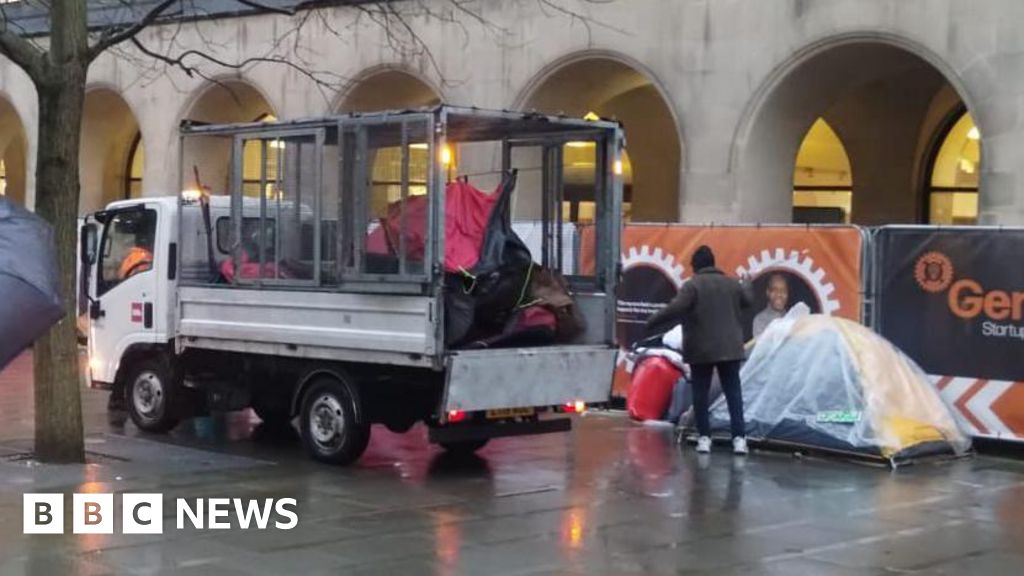
A homeless camp in Manchester where refugees had been living in tents has been cleared after the city council took legal action to retake the land.
People who lived at the encampment in St Peter’s Square were handed plastic bags for their possessions and told to leave the area from about 06:45 GMT.
Abandoned tents were thrown into a bin lorry as part of the eviction.
Manchester City Council said temporary accommodation had been offered “to everyone who we owed a statutory duty” living in the camp.
The camp had mainly been occupied by refugees granted the legal right to remain in the UK, and was pitched along a set of archways near Manchester Town Hall.
The council said there had been “fluctuating numbers” at the camp, where homelessness assessments were carried out for all residents.
Those classed as “vulnerable and in priority need” were offered temporary homes, while others were offered advice and support, the authority added.
It comes after a judge ruled in favour of the council’s order and said the refugees were trespassers by law.
Campaigners at the Greater Manchester Law Centre had tried to block the move and claimed the council had not fulfilled its statutory duty to offer help to all staying there.
Some of the camp residents packed up their tents and belongings and set up again in other parts of the city, including nearby Mosley Road.
The possession order was specific to St Peter’s Square, where there had been issues keeping the area “safe, secure and clean”, the council said.
It said the council had “consistently stated” that the camp was not a suitable place from which to get or “accelerate” access to support
The council’s statement added: “We remain clear that such encampments anywhere in the city are not in anyone’s best interests and are not a suitable place from which to access support.
“We will continue to engage with the people in the tents and monitor the situation.”

